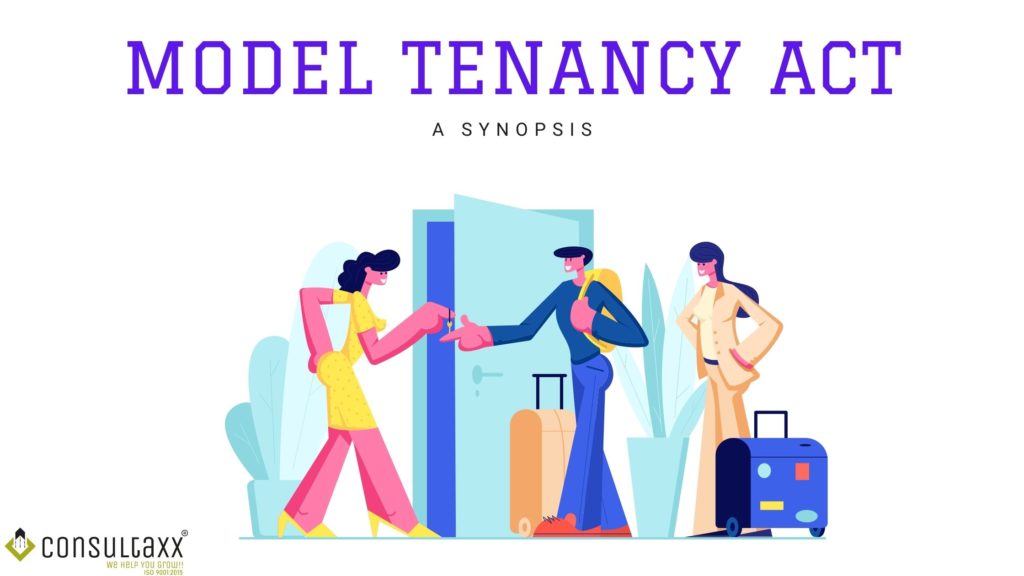Earlier in 2019, the Ministry of Housing and Urban Affairs published the draft of the Model tenancy act. Now, after two years, the union cabinet has approved the Model Tenancy Act, 2021. It aims to reduce litigations and boost rental housing in the country.
The legal framework prescribed in the model tenancy act will solve the houserentshortage problem. Further, it will also encourage the private sector to develop housing projects and, consequently, fulfil the requirement of rental premises.
What is the Model tenancy act, 2021?
As per the Model Tenancy Act, 2021, it is mandatory for all the new tenancies to submit the written rent agreement to the rent authority. Now, instead of an informal or verbal agreement, there will be specific contract arrangements.
Also, MTA primarily covers the following aspects:
- Establishment of a fair mechanism,
- Speedy disputes resolution, and
- Protect tenants from unnecessary hikes.
Purpose of bringing Model tenancy Act
The conflict among the landlords and tenants are the main cause of restricting the rental growth. It creates fear of repossession of the premises by the tenants.
The existing rent control laws lack transparency and accountability. Therefore, to overcome such obstacles and maintain balance among both the parties, the Model tenancy act, 2021 came into force. Hence, the act will encourage the growth of rental housing.
However, the states have the choice to adopt the Model Tenancy Act, 2021, as fresh legislation or make amendments to the existing rent control acts.
Applicability of Model tenancy Act
The applicability of MTA, 2021 shall be as follows:
- It covers properties let out for residential, commercial or educational use, and urban – rural areas.
- Hotels, inns, lodgings are excluded from MTA Act, 2021
Key highlights of the Model Tenancy Act, 2021
General key points
- The rent agreement in writing is mandatory and have to submit to the concerned district rent authority.
- Disposal of rent complaints within 60 days.
- No tenant shall stop the payment of rents to the landlord even if the dispute is pending.
- Prior written consent of the landlord is compulsory for subletting the premises or structural changes.
- The act will be applicable prospectively, i.e., no effect on existing tenancies.
- The act covers both urban and rural areas.
- The tenancy will be deemed to be renewed monthly. The renewal shall expire when the tenant vacates the premises or agreed in writing for termination.
Rights and responsibilities of landlord and tenant
- Security deposit: The tenant has to submit a security deposit:
- In case of residential premises – two-month rent
- In case of commercial property – six-month rent
- Compensation of non-vacancy by tenant: If the tenant fails to vacate the property after expiration or termination of tenancy, the landlord can charge double rent for the first two months. And, after that, four times of the monthly rent.
- Revision of rent: The rent agreement shall contain the terms of rent revisions. However, if it is not mentioned, the landlord will give a three-month notice before revising the rent.
- Unforeseen situations: In the force majeure event, the landlord shall allow the tenant to continue the possession of the premises. And, such possession shall be allowed for one month from the date of the end of such event.
- The landlord can’t cut water and electricity supply in case of any disputes with the tenant.
- For any repair and maintenance of the premises, the landlord has to provide a 24-hour prior notice.
Landlord shall be responsible for the following activities:
- Repair structural damages except damage caused by the tenant,
- Whitewashing,
- Painting of doors and windows,
- Plumbing or changing pipelines, electrical wiring and necessary related maintenance.
However, if the tenant refuses to pay money for any repair and maintenance, for which he/she is responsible, in that case, such money can be deducted from the security deposit or rent.
Tenant shall be responsible for the following activities:
- Drain cleaning,
- Repair of kitchen fixtures,
- Replacement of glass panels,
- Maintenance of open spaces, and
- Any negligent damage caused by the tenant.
How grievance redressal mechanism under Model Tenancy Act, 2021 will work?
- Digital platform for rent agreement: A digital platform will be set up for submitting the rental agreement and related documents. The landlord can submit the documents in their local vernacular language. And the rent authority will supervise this platform.
- Establishment of independent authority: Every state will set up a grievance redressal mechanism for the fast resolution of rent disputes. They will work to protect the interest of both the landlord and the tenant. It will comprise three parties, namely:
- Rent authority,
- Rent court, and
- Rent tribunal
- Disposal of complaint: The rent court and tribunal have to dispose of the rent complaints/appeal within 60 days. Besides that, the tenant has to pay the rent to the landlord during the pendency of disputes.
Conclusion
The Model Tenancy Act, 2021 has incorporated various provisions and obligations to be followed by the landlord and tenants. The act mandates for written agreement for all new tenancies that will minimize disputes. It will enhance the trust between the landlord and tenant.
Further, any dispute will get speedy resolution with the help of the redressal mechanism established under the MTA Act.




